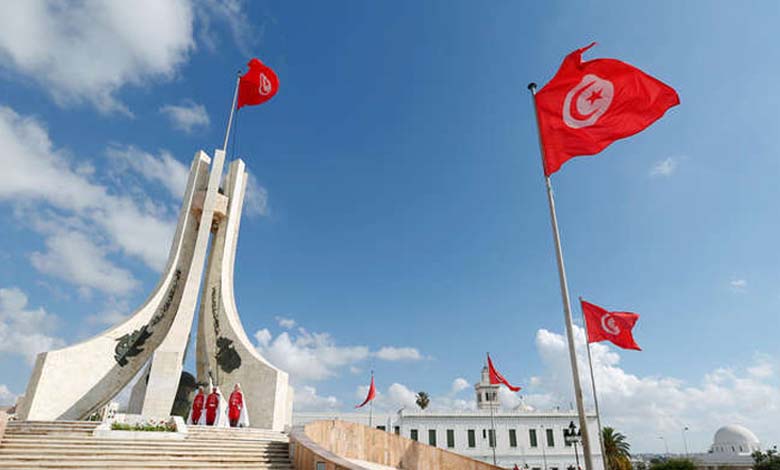Tunisia pursues legal action against pages and websites engaging in media defamation

The spokesperson for the Court of Appeals has confirmed that the targeted pages are managed from outside the Tunisian territory, and necessary measures are being taken with the relevant authorities to track down their owners, including issuing international arrest warrants.
Tunisia is tightening its measures to combat rumors and fake news aimed at inflaming public opinion and inciting it against the authorities, exploiting both the economic and financial crisis and certain leaks and questionable documents.
The judiciary is working to monitor certain suspicious pages and websites managed from abroad with the aim of tarnishing the reforms being carried out by President Kais Saied and serving the interests of opposition forces, some of whose leaders have been arrested or have fled abroad.
In this regard, the spokesperson for the Court of Appeals, Habib Tarkhani, said to the official news agency that “eight websites and electronic pages are subject to criminal investigations by the public prosecutor’s office, in accordance with the joint communiqué issued by the Ministries of the Interior, Justice, and Communication Technologies.” Last month, the three ministries issued a statement confirming “the initiation of legal proceedings to identify the owners and exploiters of pages, accounts, and electronic groups that deliberately use these platforms to produce, promote, send, or prepare false news, statements, or rumors with the aim of defamation, tarnishing reputation, assaulting the rights of others, harming public security and social peace, and undermining the interests of the Tunisian state while attempting to tarnish its symbols.”
The three ministries issued a warning to “anyone who contributes or participates in disseminating content from a site or page subject to judicial or criminal investigation, inside or outside Tunisian territory, that they expose themselves to the same investigations.” The statement emphasized that “lists of pages and electronic groups subject to investigation will be periodically published on official websites.”
Tarkhani mentioned the names of these pages, which include “Sayeb Salah”, “Haykel dkhil”, “Politikat”, “9ahweji ede5iliya”, “9ahweji AFM”, “Almared Al-tounsi Litathir Al-Dakhiliya”, “9ahweji Al-Barlaman” et “Shlafti Qartaj”. These pages have been involved in violating the dignity and defamation for the benefit of certain political entities that were in power over the past decade.
In a statement via the private radio station “Shems FM” on Thursday, the spokesperson for the Court of Appeals emphasized that the names of the pages subject to judicial investigation will be published gradually after the research and technical tests have been conducted.
He explained that “most of the targeted pages are managed from outside the Tunisian territory, and necessary measures are being taken with the relevant authorities to track down their owners.” He stressed that anyone who contributes or participates in disseminating content from these pages exposes themselves to the same investigations.
He stressed that Tunisia will activate international arrest cards against the parties behind these pages and the extradition agreements with brotherly and friendly countries.
The “Sayeb Salah” page was behind the leak of a call between Ennahdha’s acting president Munther al-Ounissi and Turkey-based journalist Nadia Okasha about some abuses within the Islamist movement, including funding its activities through external sources
Al-Ounissi was suspended after the leak, but the latter confirmed that the recording circulating of him with the journalist was fabricated, while observers believe that the matter indicates conflicts within the Ennahdha movement between the wings at home and abroad.
The Instalingo case was the most prominent example of the role of certain suspicious sites in targeting certain political figures for specific interests or pressuring the authorities to take measures such as the dismissal or appointment of ministers after a campaign against them and the arrival of pressure to conclude arms deals with certain states.
Several pro- and pro-Ennahdha figures were implicated in the case of Instalingo, including former interior ministry spokesman Mohamed Ali al-Aroui.












